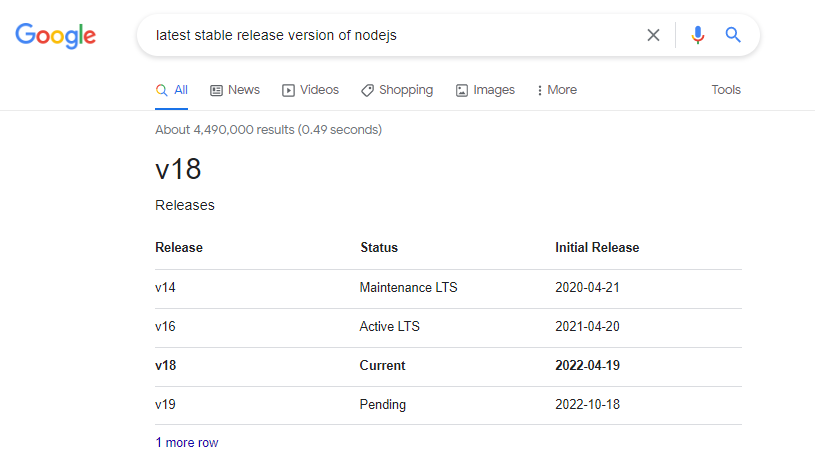Applications/Packages
Python 3.10
Reference: Download Python
-
Install Python 3.10. Note that this was tested on Ubuntu 22.04 LTS.
sudo apt install -y python3
Python 3.12
Reference: Download Python
-
Install Python 3.12.
sudo apt install -y python3.12 -
Verify.
python --version
If you are using Ubuntu 22.04, you might only be able to install Python 3.10. To install Python 3.12:
-
Install this package (this is required to run
add-apt-repository)sudo apt install -y software-properties-common -
Add the deadsnakes PPA repository and run update.
sudo add-apt-repository ppa:deadsnakes/ppa
sudo apt update -
Install Python 3.12
sudo apt install -y python3.12 -
Verify:
python3.12 --version
Pip 3.12
-
Install pip.
sudo apt install python3.12-venv
python3.12 -m ensurepip --upgrade
## Ensure Python 3.12 and its pip are in your PATH
which python3.12
which pip3.12
Python Virtual Environment
-
Install Python Virtual Environment
sudo apt install -y python3.12-venv
NodeJS
If you try to use apt-package manager to install the latest version of node, there's a chance that you'll download the latest version in the Ubuntu app storee and not the lastest release version of NodeJS.
This is mainly because the Ubuntu team may take a while to test new versions of the software and release them to the official Ubuntu store.
To install the latest version in the Ubuntu app store but may not be the latest release version,
sudo apt install nodejs -y
To install the lastest release version of NodeJS, do a quick google search for "latest stable release version of nodejs". Note which version is the current one.

Use NVM to install NodeJS
Let's install nvm first. This will allow us to use different versions of node.
curl -o- https://raw.githubusercontent.com/nvm-sh/nvm/v0.35.3/install.sh | bash
Restart your terminal and verify. You should have version 0.35.5 installed or higher.
nvm --version
Install the NodeJS version that you recorded earlier. Note that if you need other versions, you can also install them using the same command.
nvm install <version>
Verify the latest version installed.
node -v
If you have multiple node versions in your machine, you can switch between them.
nvm use <version-number>
Use Nodesource to install NodeJS
We can also use Nodesource to install the NodeJS package.
curl -sL https://deb.nodesource.com/setup_18.x | sudo -E bash -
Note: v18 is the current "release" NodeJS version and will be promoted to Long-term Support (LTS) in October 2022.
NPM should also be automatically installed. You can verify the NPM version by running the command below.
npm -v
If it is not installed, proceed to the next steps.
NPM
sudo apt install -y
We may need to run the command below for certain npm packages to run.
sudo apt install -y build-essential
You can read more about the installation process in this freeCodeCamp article.
Go
Doing a quick Google search, we find a link on how to install Go (golang) on Ubunt:
Method 1: Using Snap
sudo snap install go --classic
You should see the following output returned.
go 1.18.3 from Michael Hudson-Doyle (mwhudson) installed
Method 2: Using apt-get/apt
sudo apt update
sudo apt upgrade
sudo apt search golang-go
sudo apt search gccgo-go
sudo apt install golang-go
Verify.
go version
go version go1.18.3 linux/amd64
Method 3: Using a Script
This script can be used for installing Go in your Linux instance. You can also use this script if you're running WSL on your Windows machine.
#!/bin/bash
## Install Go
wget https://storage.googleapis.com/golang/go1.6.2.linux-amd64.tar.gz
sudo rm -rf /usr/local/go
sudo tar -C /usr/local -xzf go1.6.2.linux-amd64.tar.gz
echo "export GOPATH=~/go" >> ~/.bashrc
source ~/.bashrc
Make the script executable and then run it.
chmod +x install-go.sh
./install-go.sh
If you're using Google Cloud Platform to do the labs, the Cloud Shell should be pre-installed with Go but it might not be running the most recent version so you may need to run the script there.
Test
Create a simple hello-world.go program.
// Hello Word in Go by Vivek Gite
package main
// Import OS and fmt packages
import (
"fmt"
"os"
)
// Let us start
func main() {
fmt.Println("Hello, world!") // Print simple text on screen
fmt.Println(os.Getenv("USER"), ", Let's be friends!") // Read Linux $USER environment variable
}
Compile and run.
go run hello-world.go
Hello, world!
ubuntu , Let's be friends!
Build/compile packages and dependencies:
go build hello-world.go
ls -l hello*
-rwxrwxr-x 1 ubuntu ubuntu 1766381 Jun 23 08:05 hello-world
-rw-rw-r-- 1 ubuntu ubuntu 305 Jun 23 08:04 hello-world.go
./hello-world
Hello, world!
ubuntu , Let's be friends!